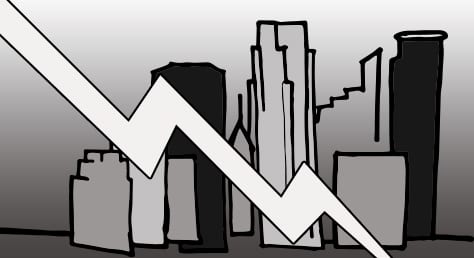Recently, The Atlantic magazine published an article about “The Miracle of Minneapolis,” which claimed that the city is among the few places left in the United States where young people can pursue “The American Dream” of living affordably while surpassing their parents in financial success. The argument posits that cities with particularly high potential for intergenerational mobility, such as New York City or Los Angeles, also have exceptionally high living costs, making the balance difficult for those trying to break into any sort of business. Conversely, the article argues that Minneapolis achieves a perfect balance for the young through “fiscal equalization.” This claim is based on the idea that the city’s commercial success is supposedly spread to all local communities, so the poorer areas aren’t left out of the successful job market.
This vision of a shining metropolis that funnels Midwestern talent into medium-sized companies – which grow into into booming businesses – is certainly appealing. Even more appealing is the idea that those businesses foster an economically equal community where all members access the same level of opportunity, but such an ideal only really manifests if you drop a few groups. Immediately after its publishing, this article was sharply criticized with claims that extreme racial inequality is a pervasive problem in Minneapolis, one that is totally glossed over in this idealized view of the city. University of St. Thomas law professor Nekima Levy-Pounds labeled Minneapolis as a tale of two cities: “It’s the best of times and it’s the worst of times depending on whether you are black or white.”
While many of the claims made in the first article are not disputed, the celebration of Minneapolis as a “miracle” city has been hard for many to swallow when such clear racial disparities exist. This oversight is even clear in some of the basic statements the author makes, such as the claim that Minneapolis effectively “prevents ghettos from congealing.” This statement is so blatantly false that it almost seems to be intentionally ignoring aspects of the city for the sake of presenting it in a better light. This approach seems to be an issue presented in the article at large, given that the talk of the “American Dream” and potential for success seems to be fairly biased. By failing to mention racial disparity, which is exceptionally high in Minneapolis as compared to many other American cities, the premise is framed under the assumption that those seeking this dream are solely white and ultimately neglects much of the non-white population of the area.
At its heart, this article seems to reflect the nature of modern discrimination in much of the U.S. and in Minneapolis. There are the blatant marks of racial disparity, some pretty clear regional segregation and just general problems that impact everyday life. In Minnesota, one-third of black residents live underneath the poverty line; they are three times as likely to be unemployed and 11.5 times as likely to be incarcerated based on marijuana possession than their white counterparts. Beyond this, a large part of modern discrimination is connected to an idea of marginalization through a lack of representation or voice, a phenomenon that this article plays into. By glossing over the plight of the black people in Minneapolis, they are essentially communicating that the community isn’t important enough to be represented.
This idea of voice is tantamount to creating a community that is truly equal for all. In the Atlantic magazine argument, the value of Minneapolis is equated to the potential for the aforementioned “American Dream,” a quest for self-determination centered on the capability of the individual to create his or her own destiny that is greater somehow from where they originated. The inclusion of this concept as perhaps the most important pursuit for one to work toward indicates a sort of self-interest that seems in line with the neglected issues in the black community.
The emphasis on the “American Dream” compounds itself to create a community fundamentally opposed to equality. Beyond the impact of having a group of people all working to serve their own interests, this idea is harmful because it allows for people to believe that any success is the result of their own personal effort and may neglect other external factors. We exist in a world in which we cannot fully define our own fates, so it is as detrimental to account all successes to personal value as it is to blame oneself completely for any failures.
Conlan Campbell ’18 [email protected] is from Burnsville, Minn. His major is undecided.
Graphic Credit: ETHAN BOOTE/MANITOU MESSENGER



